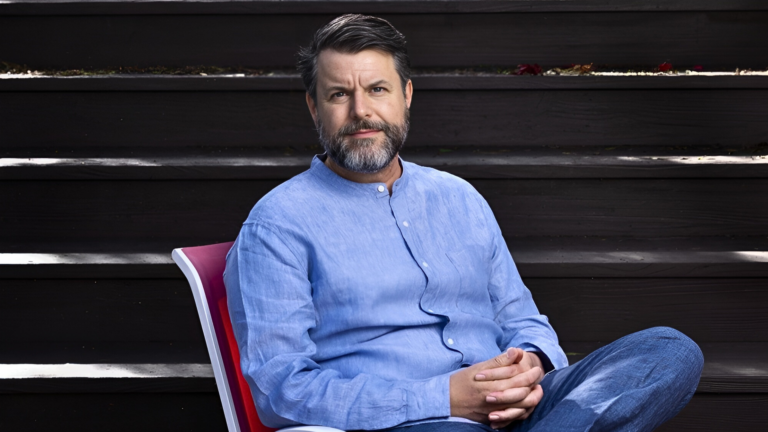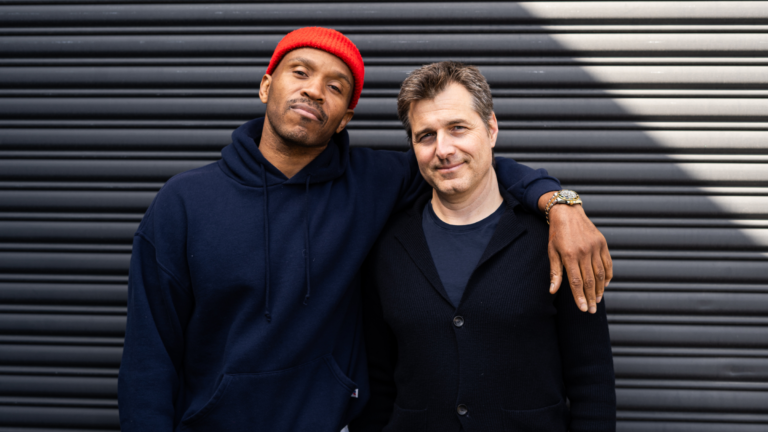This week’s conversation is with Dr. Philip Zimbardo, a professor emeritus in psychology at Stanford University, and creator of The Stanford Prison Experiment.
Philip has spent over 50 years teaching psychology – he’s an absolute legend in the field.
He’s written more than 60 books and has over 600 publications (professional and popular articles, and chapters).
Among his books are: Psychology and Life textbook, Shyness, The Lucifer Effect, The Time Paradox, The Time Cure, and most recently, Man Interrupted.
His current research looks at the Psychology of Heroism, asking: “What forces push some people to become perpetrators of evil, while others act heroically on behalf of people in need.”
As founder and president of the nonprofit foundation, Heroic Imagination Project (HIP), he does trainings globally in schools, institutions, and businesses.
It would be impossible to cover all his work over the course of an hour conversation, but we discuss what gave him the idea to conduct The Stanford Prison Experiment and how that shaped some his future work which includes studying topics like: shyness, the conception of time, and heroism.
“I’m just really curious about human nature. I keep asking myself a question, I wonder what would happen if? Or, I wonder why people did that. Or, what would happen if we change this element? I just have this mind of an experimental social psychologist.”
In This Episode:
What drives his work?
I’m just really curious about human nature. I keep asking myself a question, I wonder what would happen if? Or, I wonder why people did that. Or, what would happen if we change this element? I just have this mind of an experimental social psychologist. I’ve been criticized as being a jumping Jack, jumping from one thing to another and back and forth. But it’s really not, it’s that my early work on the prison study came out of my interest in understanding the psychology of evil. How is it that good people do bad things?
The basic premise of the Stanford Prison Experiment
We all play roles… And we wanted to put them in a situation where the roles are pre determined. Everyone knows what it means to be a prisoner and guard if you are in a prison setting. So I said, my social situation, in a way is more powerful than Milgram’s, because it links to things in the real world that everybody knows. We’ve seen movies about prison, we’ve read books about prison. And we know that in prison there’s three roles. There’s a Warden, the guards and prisoners – and the roles are really spelled out very clearly. And so that’s what I did. I created a study called the Stanford Prison Experiment. And what made it work was, I persuaded local police chief, to allow his officers to make a mock arrest, they actually went around to all the places we told would be prisoners to wait, and then arrest them, charge them with a crime, bringing them down to the Palo Alto police station and book them, fingerprint them, take a picture, put them in a real prison cell, put a blindfold on. And then my graduate student, Craig Haney would come take them drives them down to the basement of the psychology department, where we had created our prison yard, and then the study would be done.
Why the study ended early
That’s what’s unique about the study that people forget is that, instead of being one hour as almost all psychological research is, it was a week-long experience for everybody including the staff. So that’s the first really big difference. And even though we had selected prisoners, everybody who was normal and healthy, in 36 hours, the first prisoner had an emotional breakdown, prisoner 8612. And then every single day there after another prisoner had broken down. We had one Chinese student, Glenn Gi, who had a full body rash, was psychosomatic and had to be released. So I ended the study after six days, because it was out of control. Prisoners were suffering, but guards were becoming ever more creatively evil.
How situational pressure affects the way we think
When you see this study, the first reaction of everybody should be, I would never do that. Okay. But you’re saying that being in a safe situation, being in your home environment, or a school environment. And what you don’t realize is when you are embedded in a social situation and you’re not alone, there is the staff who said, we hired you to be a prison guard, not somebody sitting around smoking a cigarette. The other guards on your shift are going to put pressure on you to say, come on, we’re all in this together. And then, you know what it means to be a prison guard in a prison, that prisoners are dangerous. And in fact, on the morning of the second day, the prisoners rebelled, locked themselves in their cell, refused to come out, curse the guards. And that’s when the guards said, these are dangerous prisoners. So that redefines everything is that they’re not students playing the role of prisoner or guard. They are dangerous prisoners. And what do you do with dangerous prisoners? You have to dominate them. And that’s what we saw emerging.
The positive and negative takeaways from the pandemic, as a “social experiment”
The great news about human nature is adaptability. The reason we are here in 2020 after generations and we’ve had pandemics and 1818, we’ve had polio epidemic diseases. So the positive news about the pandemic is the creation of the vaccines. So this is part of the creative aspect of human nature. And then not only creating a vaccine, but be able to manufacture them. Here’s, again, human ingenuity at work. And then being able to transport them to various sites and then have healthcare workers working almost around the clock to give people vaccinations. So the positive part for me of the pandemic, is looking at the creativity that it inspired in developing vaccine, and developing the transportation and delivery. And that is what’s going to literally save us. The negative part is that for some people, they may never really fully recover. That is during the time they were isolated their relationship to their spouse, was terrible, or in some cases, the relationship of parents to kids was terrible. But I hope in retrospect, the positives will outweigh the negative.
“Shyness is a self-imposed psychological prison”
I’ve always been focused on helping other people enjoy life more fully in the process by enjoying life fully. But coming out of this study, I began to think about when talking to my students the next year in Stanford, of shyness as a self imposed psychological prison. Now, unlike most other phenomena, nobody says you are a shy person, I say I am a shy person and therefore, I can’t raise my hand in class, I can’t ask the boss for a raise, I can’t ask the girl for a date. So you limit your freedom of association, your freedom of speech. And as the guard in you, you put a constraint and say, don’t do it, people going to laugh at you, you’re going to fail. Using that metaphor, I began to study shyness.
What it means to be “shy” and how to “cure” it
I created a shyness clinic at Stanford, which is still working 50 years, 40 years later, at Palo Alto University, in which we get 100% cure. What kind of therapy gets 100% cure? How? It’s very simple. By understanding what it means to be shy. I mean, three things. One, you don’t have the basic social skills, communication skills. Secondly, you say negative things about yourself. I’m too fat, I’m too ugly, I’m too dumb. And third is a physiological response – I blush, I get emotionally aroused, I can’t function properly. So we have a treatment for each of those three things. We teach you social skills, we teach you a cognitive behavior modification, and we teach you self control and meditation. And when you do that and we do our therapy only in groups that we have been 100% successful.
The Zimbardo Time Perspective Inventory (Past)
For some people, when I say, when you think about your past, what comes to mind? For some people it was the good old days – my best friends, all my successes, the good grades I got in school, the good girlfriend I had. For other people, it’s the opposite, it’s failure, rejection, abuse. And so we call those past positive versus past negative.
The Zimbardo Time Perspective Inventory (Present)
For some people in the present, these are people say, nothing I do ever makes a difference. I work hard and I still can’t save any money. I try to be good to friends and family, but they don’t accept me. And that there’s a sense of fatalism. That it doesn’t even pay to try because nothing I do makes a difference. So that’s present negative. Present hedonism is you always try, you always try something new. You enjoy life fully. You live for the moment, and you make friends, you’re funny, you’re happy. So that’s the positive side of present.
The Zimbardo Time Perspective Inventory (Future)
Now, in the future, education is the key to a positive future. In fact, we show that people who are more educated tend to be more future-oriented. You’re always planning, you’re not living for the moment, you’re not a hedonistic, you’re planning. What do I have to do today to get tomorrow to be more successful? These are the people who invest wisely. These are the people who continue on, we get as much education as possible. These are the people who if you’re a performer, a ballet performer, or a baseball player, basketball player, you put in a lot of time practicing. So that’s the positive side. The negative side of the future is, what? I might not succeed. I might put in all this time and all this effort and I could fail. There’s examples of people failing. The future negative is anxiety about not succeeding.
The ideal combination – Balanced Time Perspective
What combination is ideal? Ideal is, balanced time perspective, BTP. That means high and past positive, low and past negative. Moderately high and present hedonism, low and present-fatalism. High and future orientation positive, low on future orientation negative. And that combination turns out to be ideal for success in life, for enjoyment of life, for many, many, many good things.
Being a dynamic person
So there’s a bunch of components that go to make up a positive social creature who knows how to interact and link with other people, and actually invites other people to interact with them. And it’s not a skill that you learn easily. It’s not a skill that anybody teaches you. Dynamic is: you’re always changing, you’re modifying your behavior based on the feedback you get from other people, based on the feedback you get from yourself.
The Heroic Imagination Project
One of the things in my Heroic Imagination Project, which is the thing I’m obsessed with currently, for the past 10 years, as we teach people how to be socio centric, the enemy of heroism is egocentrism. It can’t be about “I”, it has to be about “we.” We encourage people, especially young people, when I do online lectures these days, virtual lectures, to high school, college kids. And I say, your job in life is to make someone else feel accepted, feel respected, feel that their identity matters.
Give more compliments
I want your audience to think about that is how rarely we give compliments, and how much we like to receive a compliment. And so I’d like your audience to say, starting today, I’m going to start giving compliments. And you give compliments at home. You thank your mother for the dinner, you thank your wife for having done something special. Compliments mean, you don’t take for granted the actions of some other person. That nobody has to do the things for you that they do. Again, it’s being a person who appreciates what other people do, especially when they do it for you.
Are humans inherently good or evil?
I don’t believe anybody’s inherently evil. I believe we’re inherently good. And until they get put in a bad barrel. And there are a lot of bad barrels. A lot of jobs that we take encourage us to cheat, to lie. If you’re an old fashioned used car salesman and had to sell clunkers, that was your job. If you’re a prison guard, afraid that prisoners are going to attack you and you have to create a false illusion that you’re domineering, you’re dominating them, you’ll shoot to kill then that’s the image. I believe in the goodness of human nature. And it’s being put into situations that corrupts that.


